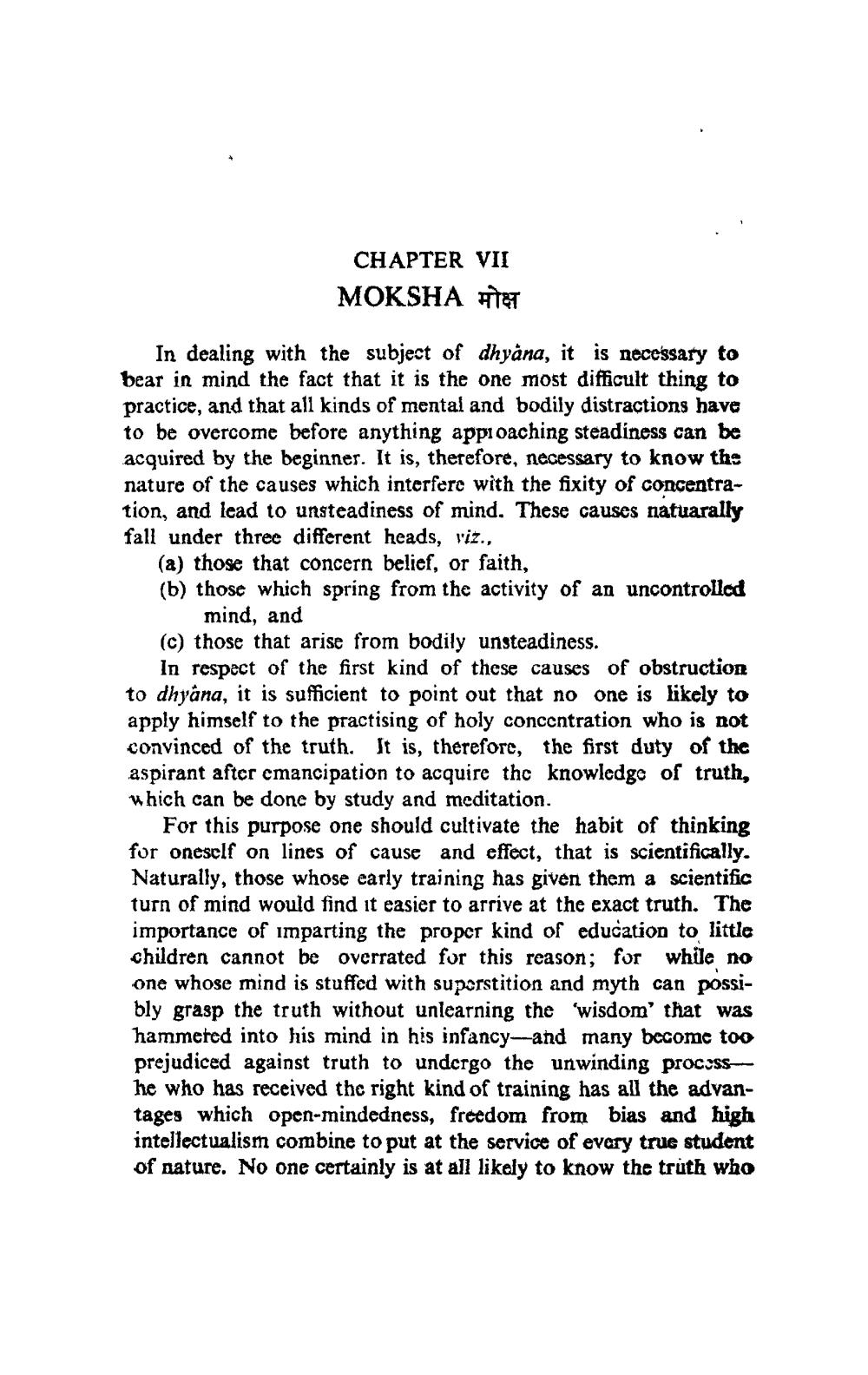________________
CHAPTER VII MOKSHA मोक्ष
In dealing with the subject of dhyana, it is necessary to bear in mind the fact that it is the one most difficult thing to practice, and that all kinds of mental and bodily distractions have to be overcome before anything appioaching steadiness can be acquired by the beginner. It is, therefore, necessary to know the nature of the causes which interfere with the fixity of concentration, and lead to unsteadiness of mind. These causes natuarally fall under three different heads, viz.,
(a) those that concern belief, or faith, (b) those which spring from the activity of an uncontrolled
mind, and (c) those that arise from bodily unsteadiness.
In respect of the first kind of these causes of obstruction to dhyana, it is sufficient to point out that no one is likely to apply himself to the practising of holy concentration who is not convinced of the truth. It is, therefore, the first duty of the aspirant after cmancipation to acquire the knowledge of truth, which can be done by study and meditation.
For this purpose one should cultivate the habit of thinking for oneself on lines of cause and effect, that is scientifically. Naturally, those whose early training has given them a scientific turn of mind would find it easier to arrive at the exact truth. The importance of imparting the proper kind of education to little children cannot be overrated for this reason; for while no one whose mind is stuffed with superstition and myth can possibly grasp the truth without unlearning the 'wisdom' that was hammered into his mind in his infancy-and many become too prejudiced against truth to undergo the unwinding process he who has received the right kind of training has all the advantages which open-mindedness, freedom from bias and high intellectualism combine to put at the service of every true student of nature. No one certainly is at all likely to know the truth who




